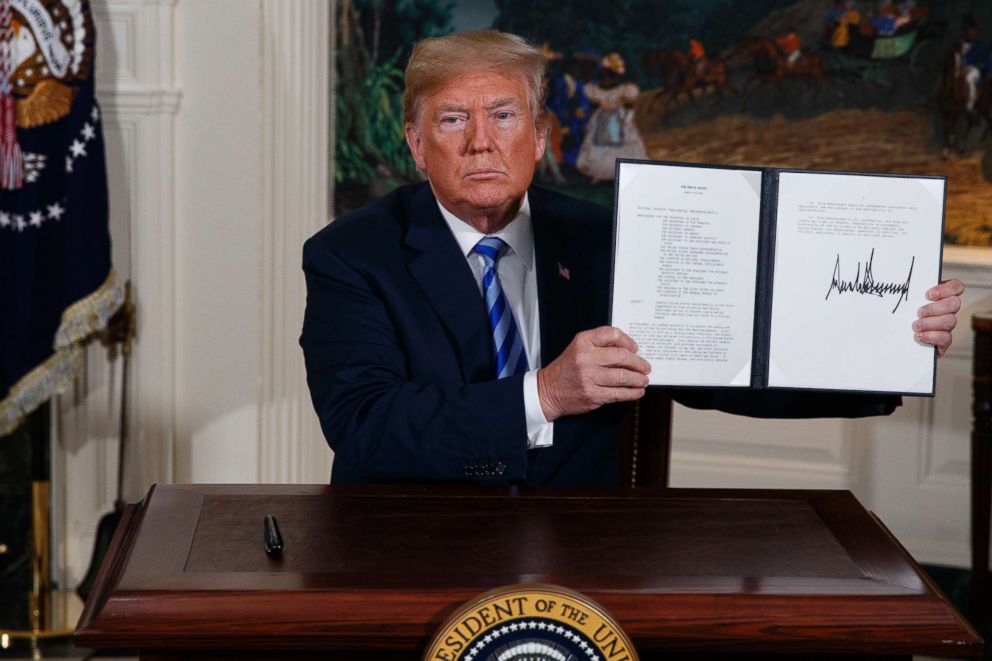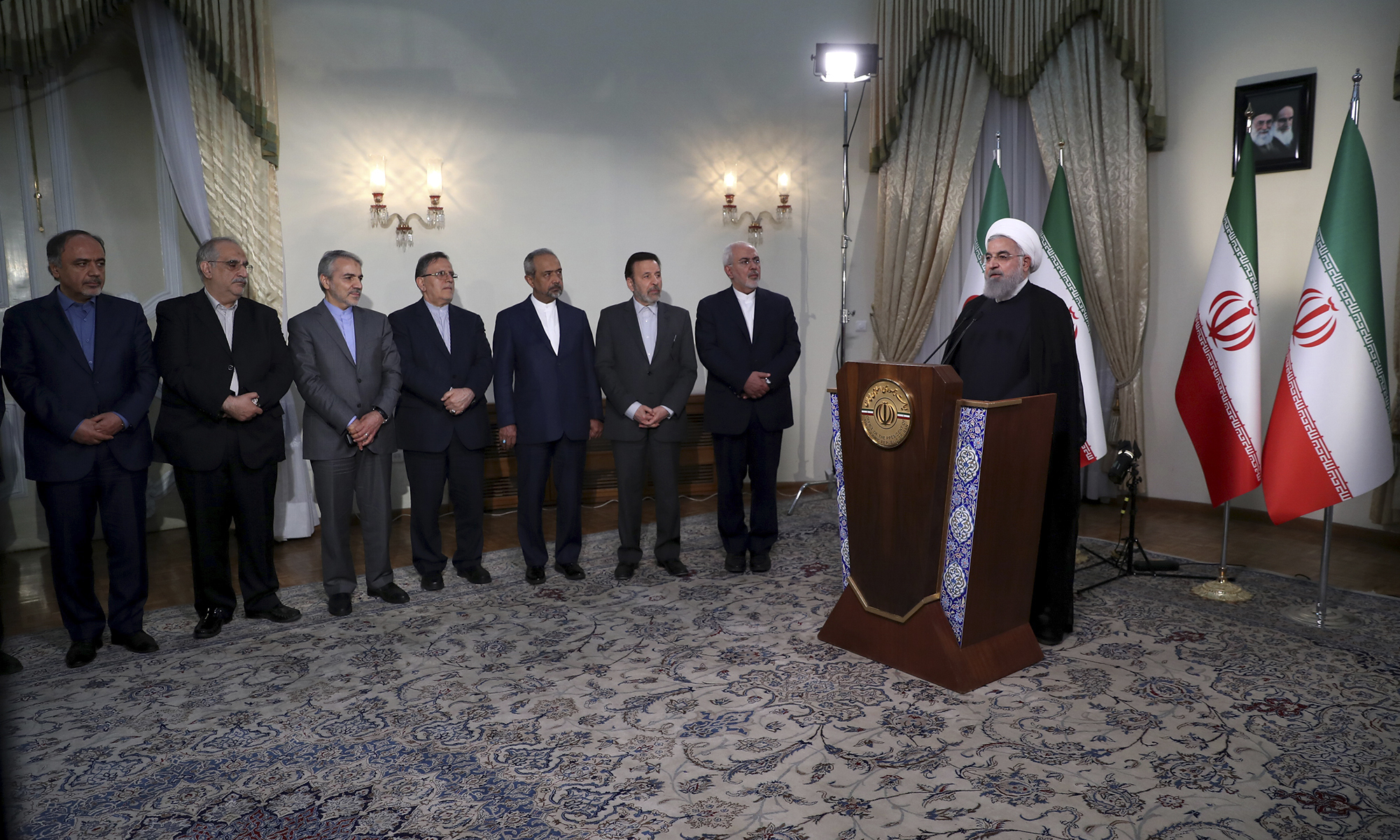Trump announces US withdrawing from Iran nuclear deal
The president's move goes against the wishes of America's allies.
President Donald Trump has announced that the U.S. is withdrawing from the Iran nuclear deal, keeping a campaign promise, but ignoring the advice of America’s allies.
The president said he is removing the U.S from the Iran nuclear deal known as the Joint Comprehensive Plan of Action and will reimpose economic sanctions on Iran at "the highest level of economic sanction" and target "any nation that helps Iran in its quest for nuclear weapons" with sanctions, too.
Trump announced his decision at the White House after a last-ditch effort by European allies to urge Trump to stay in the agreement and build upon it. Trump instead argued the deal was so "horrible" that it had to be discarded to move forward.
"It is clear to me that we cannot prevent an Iranian nuclear bomb under the decaying and rotten structure of the current agreement," Trump said. "The Iran deal is defective at its core. If we do nothing, we know exactly what will happen."

The nuclear deal was negotiated and agreed to by Iran and the P5+1 – the U.S., U.K., France, China, Russia, and Germany – in 2015, granting Iran sanctions relief and returning frozen assets in exchange for restrictions on its nuclear program and international inspections.
There will now be a 90-day and a 180-day window before certain kinds of U.S. sanctions are snapped back into place. But despite that wind-down period, the administration said clearly it is exiting the deal.
"We're out of the deal," National Security Adviser John Bolton repeated three times in a briefing with reporters.
Bolton insisted that discussions are already underway towards potentially renegotiating a new deal with Iran, but Iran – and even European allies -- have long maintained that the JCPOA is not up for renegotiation.
On August 6, the first wave of U.S. sanctions will be reimposed, on Iran's currency, precious metals, aluminum and steel, and others. After an additional 90 days, the administration will start imposing sanctions on Iranian oil and other energy sectors, the Central Bank of Iran, and shipping companies. The slow implementation is designed to give time to U.S. allies to withdraw their businesses from Iran or face American sanctions – putting the U.S. and Europe at odds.

In response, French President Emmanuel Macron, German Chancellor Angela Merkel, and U.K. Prime Minister Theresa May noted their "regret and concern" at Trump's decision, calling on Iran to maintain its commitments under the deal – and on the U.S. to essentially stay out of the way: "We urge the U.S. to ensure that the structures of the JCPOA can remain intact and to avoid taking action which obstructs its full implementation by all other parties to the deal," they said in a joint statement.
While the Trump administration has suggested they will work with Europe moving forward, the three leaders make clear their "continuing commitment" to the deal, saying plainly, "The world is a safer place as a result." That means no European sanctions on Iran – and instead, "ensuring the continuing economic benefits to the Iranian people that are linked to the agreement," the sanctions relief and access to international markets.
Related Stories
That could mean that the U.S. will have to sanction European companies and Europe will have to take action to protect its businesses – a possibility, according to a senior State Department official, who told ABC News, "Those are discussions we’re going to have with the Europeans."
But there hasn't been any preparation for that so far. "We did not talk about Plan B in our discussions" with Europe, a senior State Department official told reporters.
Much of what happens next depends in large part on how Iran responds. Iranian President Hassan Rouhani responded to Trump in a televised speech, saying that he had ordered the country's nuclear energy agency to be ready to start enrichment at an industrial scale, but that they would first wait a few weeks to see how other countries respond. That's essentially a threat to withdraw from the deal as well, depending on how Europe, Russia, and China react.
"If we see that our expectations from this deal could be met in action by the cooperation of other countries, we will stay in the deal, but if we see our interests are not guaranteed, we will decide accordingly at that time," he said.
Other American allies voiced their support for the decision, particularly Iranian enemies Israel and Saudi Arabia. Israeli Prime Minister Benjamin Netanyahu, who gave a speech last week urging Trump to exit the deal, praised "courageous leadership" and "bold decision today to reject the disastrous nuclear deal with the terrorist regime in Tehran."
ABC News' Alexander Mallin and Ben Gittleson contributed to this report.
